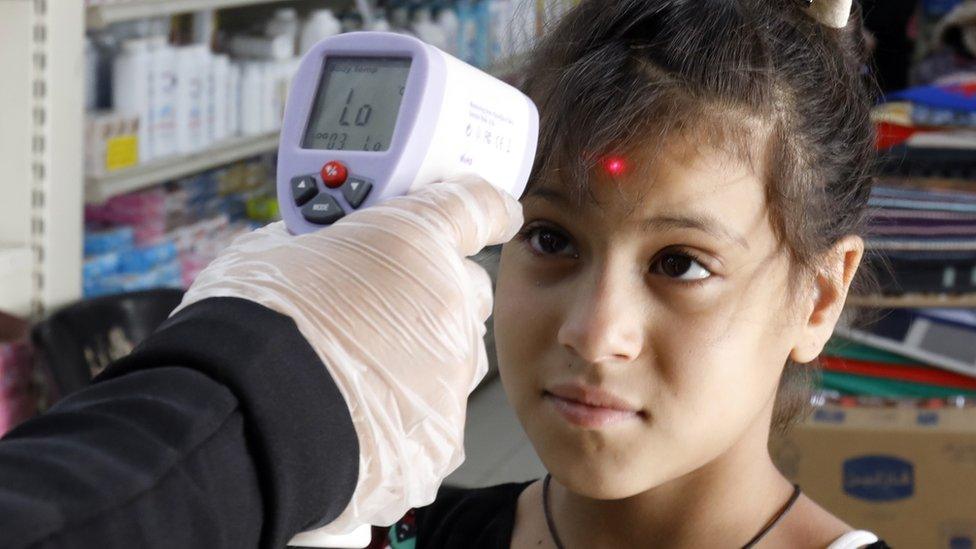Coronavirus: Five reasons why it is so bad in Yemen
- Published
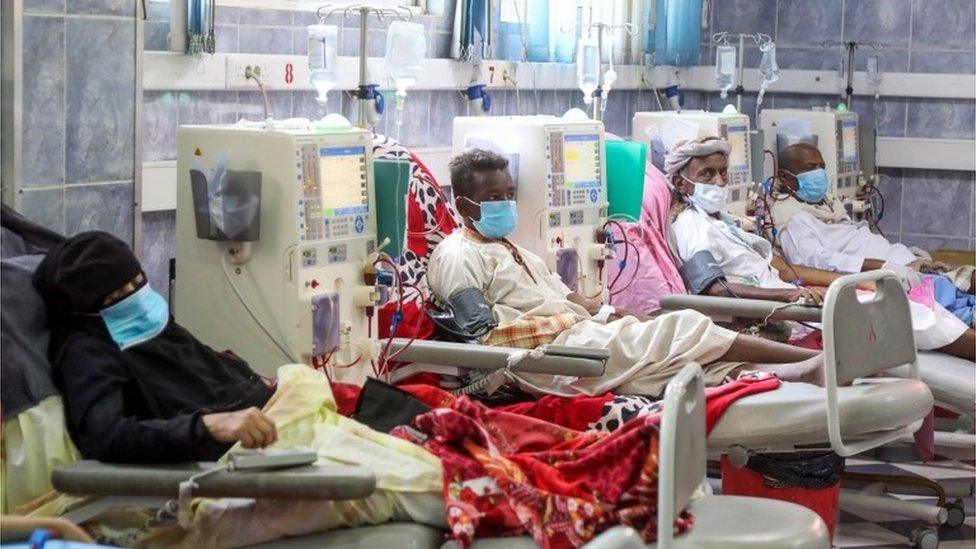
Yemen's health facilities have been devastated by five years of war
Coronavirus could spread faster, wider and with deadlier consequences in Yemen than many other countries in the world, the UN says. Here's five reasons why.
1. It is a country still at war
Since 2015, Yemen has been devastated by conflict, leaving millions of people without access to proper health care, clean water or sanitation - crucial for preventing the virus from spreading.
The sick children trapped by war in Yemen
Vital food, medical and humanitarian supplies have been restricted by a partial land, sea and air blockade put in place by a Saudi-led coalition of countries fighting Houthi rebels - while the rebels themselves have obstructed the distribution of aid.

Not having a central government in charge (rebels drove the government out of the capital and into the south of the country) makes coronavirus harder to contain.
2. It is already suffering the world's worst humanitarian crisis
Conditions in Yemen put the population at particular risk to a highly contagious disease.
Almost three years before the advent of Covid-19, the UN declared Yemen the most needy place on Earth. Some 24 million people there - that's about 80% of the population - depend on aid to survive, and millions are on the brink of starvation.
The UN says Yemen is on the brink of the world's worst famine in 100 years if the war continues
An estimated 2 million children are acutely malnourished, and the country was already struggling to cope with diseases such as dengue fever, malaria and cholera before the first cases of coronavirus were reported.
Weakened immune systems mean those suffering from chronic illnesses could contract Covid-19 more easily, and find it harder to survive.
3. Yemen's health system has collapsed
Five years of war has shattered the country's health system, leaving it incapable of coping with a pandemic.
Yemen: Death by war or pandemic
Many of Yemen's 3,500 medical facilities have been damaged or destroyed in air strikes, and only half are thought to be fully functioning.
Clinics are reported to be crowded, and basic medicines and equipment are lacking - in a country of 27.5 million people there are only a few hundred ventilator machines, which are used to help patients breathe in cases where coronavirus leads to lung failure.
4. The actual number of coronavirus cases is unknown
Without knowing more accurately who has got coronavirus, it is more difficult to prevent its spread or plan for numbers of patients putting additional strain on the already fragile health system.
Since the first coronavirus patient was reported in government-held areas in April, the true scale of the outbreak has been impossible to determine.
The government has declared just over 900 cases, external, while rebels who control the capital and other densely populated areas say they have detected only four cases in their territory.
The UN says that with testing kits in short supply and a lack of transparency in data from the rebels and the government, the actual number of cases are almost certainly much higher across the board.
5. Medics themselves are vulnerable
Alongside a lack of medicine to treat cases, medics in Yemen lack personal protection equipment (PPE), such as masks and gowns, to shield them from the disease.
An unconfirmed report on privately owned Al-Masdar news website said dozens of medics had died as a result of Covid-19 in both rebel- and government-held areas.
(March 2020) The doctor on the front line after years of war in Yemen
One of the most prominent infectious disease experts in Yemen, Yassin Abdul Wareth, died from Covid-19, external earlier this month, in what was described as a major blow to Yemen's health sector.
- Published14 May 2020
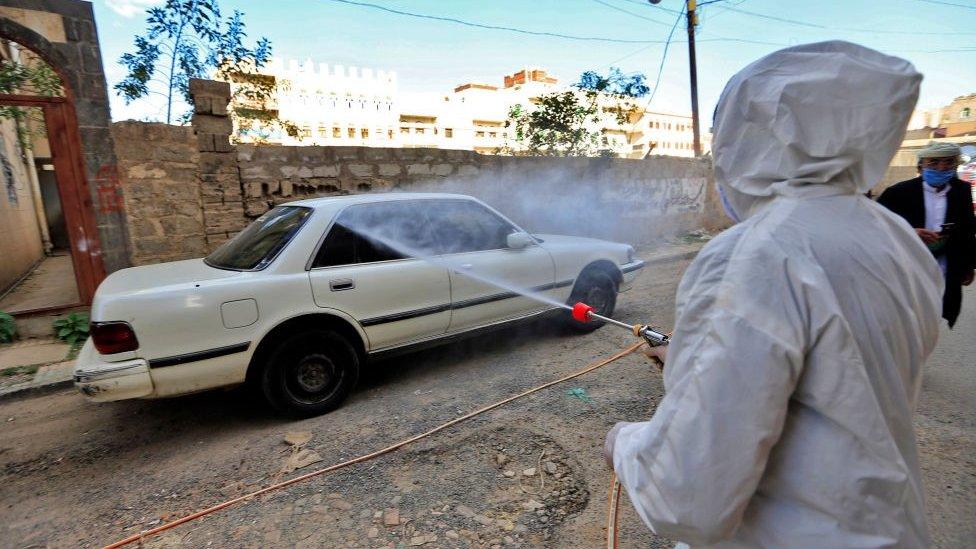
- Published15 May 2020
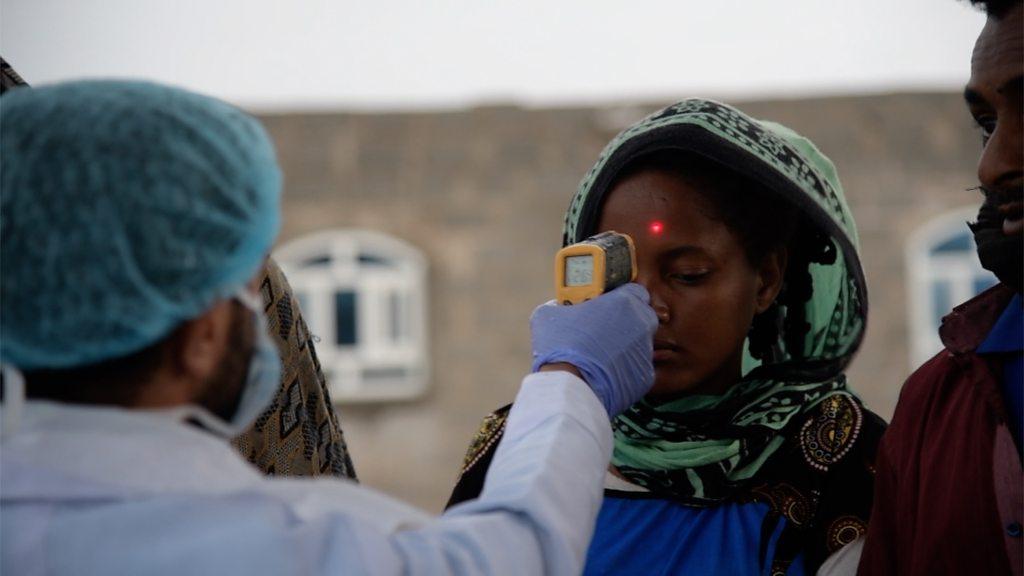
- Published14 April 2023
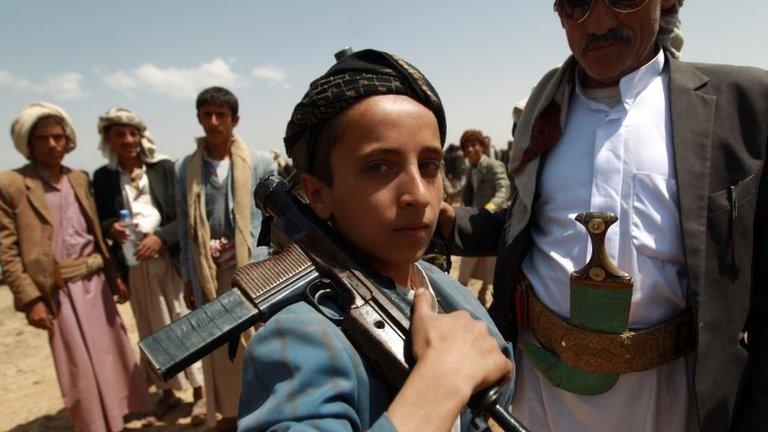
- Published10 April 2020
